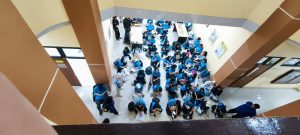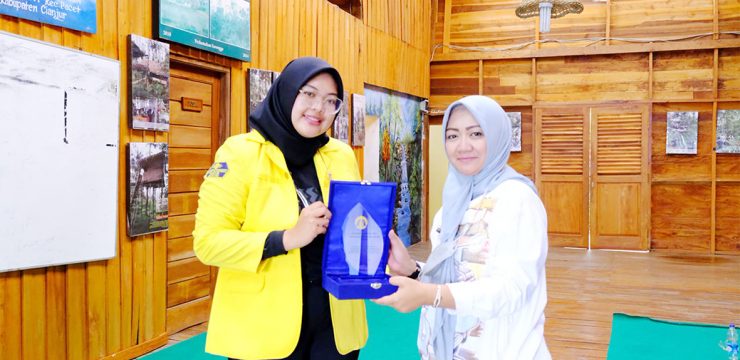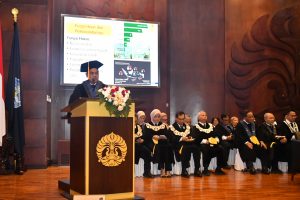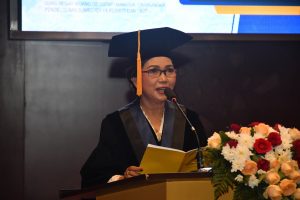Saturday (11/27/2021), a team of students from the Department of Geography, FMIPA UI, led by Syahda Arquette Sedana, was present in person in Ciputri Village, Cianjur Regency, West Java to help the local community in dealing with the flood disaster in the area.
The presence of Syahda and a team consisting of 10 fellow students in Ciputri Village is a form of contribution from the student team from the Department of Geography, FMIPA UI through the Community Service Program with the support of the Directorate of Student Affairs, University of Indonesia.
Under the guidance of Dr. Hafid Setiadi, M.T. as a Lecturer, the team provided socialization and education to residents about the importance of awareness in making efforts to prevent flooding in their residential village. One of them is by utilizing biopore infiltration holes (LRB).
"Through this activity program, we provide socialization and education to participants regarding the importance of awareness of the safety of residents in disaster-affected areas, and the use of biopore infiltration holes. The team encourages residents to actively maintain biopore infiltration holes (LRB) so that they function in a sustainable period of time," said Syahda to the FMIPA UI Public Relations team.
The activity was opened with a speech by Dr. Hafid Setiadi, M.T as the team supervisor. In his speech, Dr. Hafid said, “This community service activity is entirely an initiative of UI Geography students to contribute to solving environmental problems. However, this activity only covers a small part of the environmental and social problems faced by the community. It will not immediately be a solution. Therefore, there is a very strong hope to continue and expand, especially through the support of the spirit and togetherness of the government and the community of Ciputri Village.”
Nia Novi Hertini, S.Ap, as the Head of Ciputri Village, warmly welcomed the presence and good intentions of the FMIPA UI team. She appreciated the team's initiative as a contribution to her residents.
"Many thanks to UI students who have carried out community service by planting biopores as a prevention for flooding, hopefully this program can be sustainable and as a stimulant for the community to be able to utilize biopores in their lives," said Nia.
Next is a brief presentation about biopore infiltration holes (LRB) by the head of the community service team. Starting from the importance of the role of LRB in minimizing flooding, and its direct benefits for the community.
"The benefits of biopore infiltration holes (LRB) will be to increase the absorption of rainwater into the soil so that it can reduce waterlogging and the risk of flooding due to overflowing rainwater. Another benefit is that it can be used as a place to dispose of ordinary organic waste, where the organic waste will be decomposed by soil biota which will produce compost for agricultural plants," said Syahda explaining to the participants.
Escorted by village security officers, namely BABINSA and BHABINKAMTIBMAS, the team and participants went directly to the field to carry out the practice of making biopore infiltration holes (LRB).
The creation of biopore infiltration holes was carried out in 3 locations, namely RW 05, RW 09 and Villa Gardenia. The creation of biopore infiltration holes in RW 05 and RW 09 was carried out together with the village community under the supervision and direction of students and lecturers of the UI Geography Department.
Meanwhile, the creation of biopore infiltration holes at Villa Gardenia was carried out independently by the village community based on the biopore module provided by the UI Geography Department.
From the results of observations in the field, the team assessed that residents in Ciputri Village actually already have a sense of concern for the environment by making biopore infiltration holes (LRB), but it is necessary to strengthen it by maintaining the biopore infiltration holes (LRB) in order to create a sustainable program.
Dudin, Head of RW 9, expressed his enthusiasm for participating in this activity. He hopes that the program presented by the FMIPA UI community service team can be sustainable.
"First of all, I would like to thank my fellow students who have provided a biopore planting, and we just have to take care of it, because planting is an easy matter but maintenance is a bit difficult. Hopefully what has been done is useful, hopefully in the future there will be more programs that are driven to go to the community so that they can feel the benefits of this biopore for flood prevention," said Dudin.
News source: https://sci.ui.ac.id/
